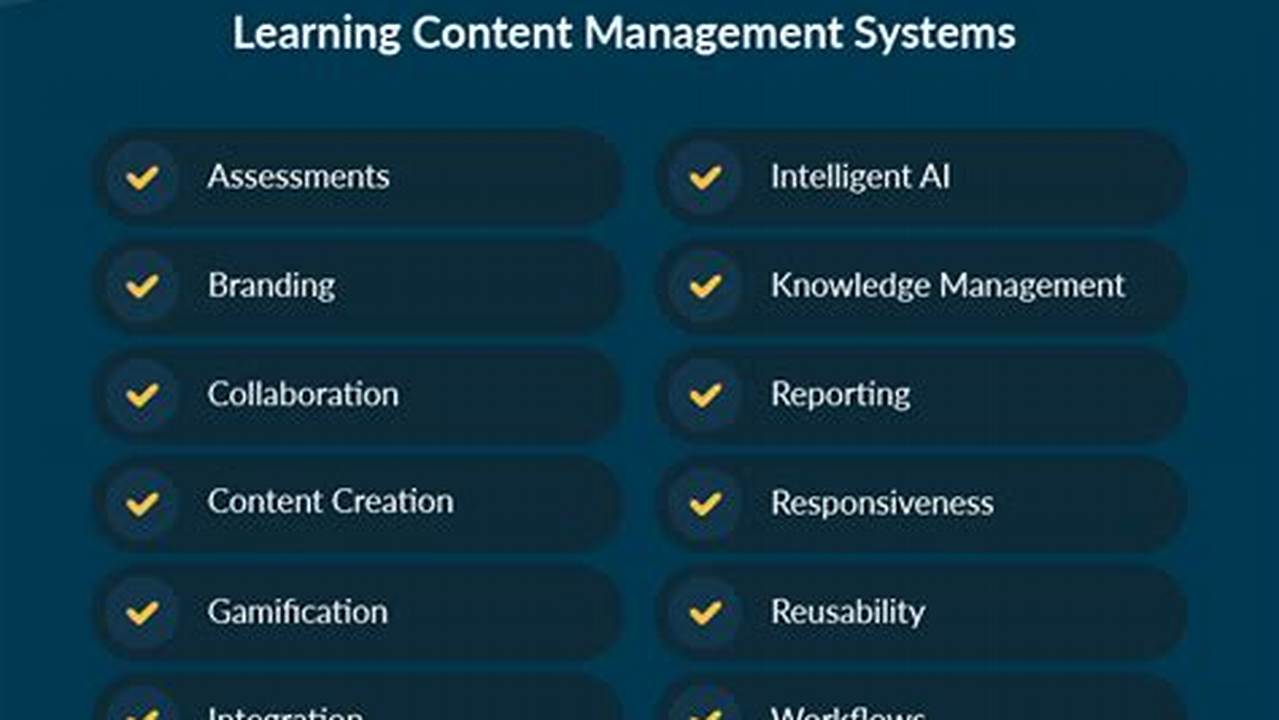Selecting the optimal platform for online education is paramount in 2024. A robust Content Management System (CMS) tailored for learning offers essential features for creating, delivering, and managing engaging educational experiences. Understanding the competitive landscape of Learning Management Systems through feature comparisons is crucial for institutions and educators seeking to enhance their digital learning strategies.
Scalability
Accommodating growing user bases and course content requires a platform capable of scaling efficiently.
User Experience
Intuitive interfaces for both learners and administrators streamline navigation and content access.
Content Authoring Tools
Rich text editors, multimedia integration, and assessment creation tools empower educators to develop dynamic learning materials.
Assessment and Tracking
Comprehensive assessment features, including quizzes, assignments, and progress tracking, provide valuable insights into learner performance.
Communication and Collaboration
Integrated communication tools, such as forums, messaging, and video conferencing, foster interaction and collaboration among learners and instructors.
Mobile Compatibility
Accessibility across various devices, including smartphones and tablets, ensures flexible learning opportunities.
Integration Capabilities
Seamless integration with third-party tools, such as video conferencing platforms and learning repositories, extends the functionality of the learning environment.
Security and Privacy
Robust security measures protect sensitive data and ensure compliance with relevant regulations.
Reporting and Analytics
Detailed reporting and analytics provide valuable data-driven insights into learner progress and platform usage.
Cost-Effectiveness
Evaluating pricing models and features ensures that the chosen platform aligns with budgetary constraints and educational objectives.
Tips for Selecting a Learning CMS
Prioritize needs: Identify specific requirements based on educational goals and target audience.
Request demos and trials: Explore different platforms firsthand to evaluate user experience and features.
Check community and support: A vibrant community and responsive support team can provide valuable assistance.
Consider future needs: Choose a platform that can adapt to evolving educational trends and technological advancements.
Frequently Asked Questions
What is a Learning Management System (LMS)?
An LMS is a software application designed to manage, deliver, track, and report on educational courses and training programs.
How does a Learning CMS differ from a traditional CMS?
A Learning CMS is specifically designed for educational purposes, offering features like assessment tools, progress tracking, and communication features not typically found in traditional CMS platforms.
Why is feature comparison important?
Comparing features allows institutions to select the platform that best aligns with their specific needs and budget.
What are some key features to consider?
Key features include scalability, user experience, content authoring tools, assessment and tracking capabilities, and integration options.
What is the significance of mobile compatibility in a learning CMS?
Mobile compatibility ensures accessibility for learners on various devices, promoting flexibility and engagement.
How can reporting and analytics benefit educators?
Reporting and analytics offer data-driven insights into learner progress and platform usage, enabling informed decision-making and instructional adjustments.
Careful evaluation of available Learning CMS options in 2024 is essential for institutions seeking to provide effective and engaging online learning experiences. A comprehensive feature comparison facilitates informed decision-making and ultimately contributes to the success of digital learning initiatives.



